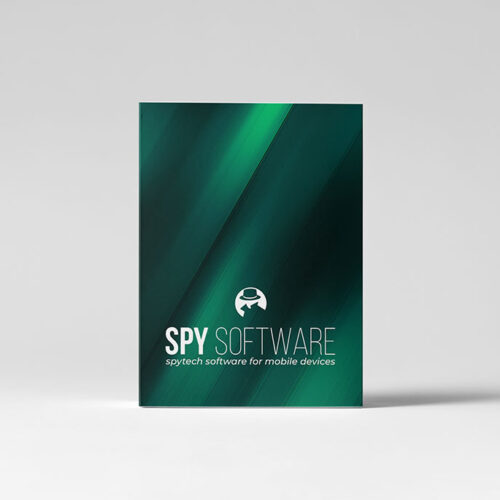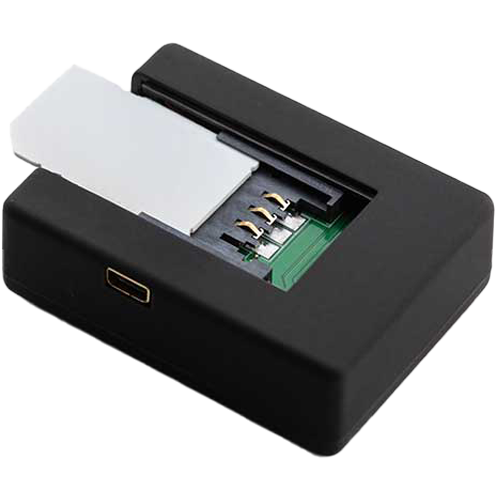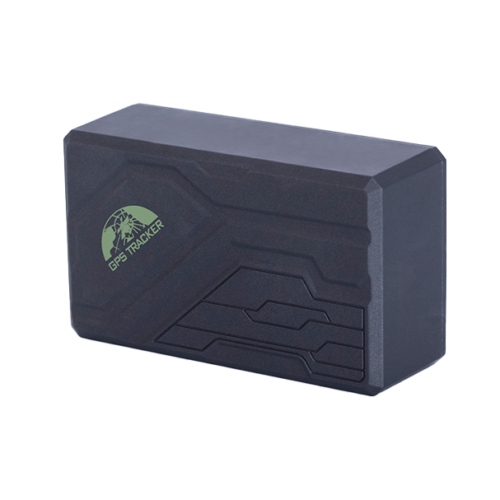Mobile forensics is the science of extracting, analyzing, and presenting digital evidence from mobile devices. It involves the use of specialized tools and techniques to acquire, preserve, and analyze data from mobile devices such as smartphones and tablets. The goal of mobile forensics is to recover important information that can be used as evidence in legal proceedings or investigations such as criminal, civil litigation, and corporate investigations. Mobile forensics experts use a variety of techniques and tools to extract data from mobile devices, including logical acquisition, physical acquisition, cloud acquisition, and chip-off acquisition.
Mobile Forensics: Understanding the Science of Extracting Evidence from Mobile Devices
Mobile devices, such as smartphones and tablets, have become an integral part of our daily lives. They are used for communication, entertainment, and storing personal and professional information. Many people rely on their mobile devices to stay connected with friends and family, keep up with the latest news and trends, and manage their professional and personal lives. The widespread adoption of mobile devices has also led to the development of new technologies, apps, and services that make them even more useful and convenient for users. Due to this, it is safe to say that mobile devices have become an integral part of our daily lives.
- As of 2021, there are over 7.5 billion mobile phone users worldwide.
- According to a study by Deloitte, the average person checks their phone around 47 times a day.
- In 2020, the average American spent about 3 hours and 15 minutes on their phone per day, an increase of about 11 minutes from 2019.
- A study by Nielson in 2020 shows that 90% of all media interactions are on mobile devices.
- A survey by the Pew Research Center in 2020 found that 77% of American adults own a smartphone, up from 35% in 2011.
- A study by the Global Web Index shows that around 42% of the world’s population uses mobile devices as their primary means of accessing the internet.
- A survey by Salesforce in 2020 found that 73% of consumers use their mobile devices to research products and services before making a purchase.
- A study by Flurry Analytics found that messaging and social apps are the most popular app categories, accounting for over 30% of all app launches.
With the increasing use of mobile devices, it has become important to have a way to extract evidence from them in case of criminal investigations or legal disputes. This is where mobile forensics comes in.
Importance of Mobile Forensics
Mobile forensics is an important field as it plays a crucial role in solving crimes, providing evidence in legal cases, and in corporate investigations. With the increasing use of mobile devices in people’s daily lives, the amount of digital data stored on these devices has grown exponentially. Mobile devices can contain a wealth of information that can be used as evidence in criminal investigations, civil litigation, and corporate investigations. This data can include text messages, call logs, contacts, emails, photos, videos, location data, and other information that can be used to identify suspects, establish timelines, and provide other important information in an investigation. Additionally, mobile forensics can help recover deleted or hidden data, which can be important in investigations and court cases. Due to the importance of mobile devices in people’s lives, the need for mobile forensics experts has also increased.
Mobile devices have become a primary source of evidence in criminal investigations. For example, in a criminal case, cell-site location data can be extracted from a mobile device to determine the location of a device at a specific point in time, which can be used to establish an alibi or place a suspect at the scene of a crime. Similarly, text messages and call logs can be used to establish communication between suspects and victims, and photos and videos can be used to provide visual evidence.
Therefore, it is safe to say that mobile devices have become a primary source of evidence in criminal investigations and that’s why mobile forensics has become an important field in solving crimes.
Applications of Mobile Forensics
- Criminal investigations
Mobile forensics plays a crucial role in criminal investigations by providing valuable evidence that can be used to solve crimes. In criminal investigations, mobile forensics experts use a variety of techniques and tools to extract data from mobile devices, such as logical acquisition, physical acquisition, cloud acquisition, and chip-off acquisition. Once the data is extracted, it is analyzed and presented in a useful format. Mobile forensic experts use specialized software tools to analyze the data and present it in a way that is useful for the investigation.For the above-mentioned reasons we could say that mobile forensics plays a vital role in criminal investigations by providing important evidence that can be used to solve crimes, identify suspects, and establish timelines. - Civil litigation
Mobile forensics also plays an important role in civil litigation by providing evidence that can be used in legal proceedings. In civil litigation, mobile forensics experts use the same techniques and tools that they use in criminal investigations to extract, analyze, and present digital evidence from mobile devices. In these types of cases, mobile devices can contain valuable evidence such as text messages, call logs, contacts, emails, photos, videos, location data, and other information that can be used to support or refute a claim. For example, in a personal injury case, mobile device data can be used to establish communication between the parties involved and to provide information about the location and movements of the parties at the time of the incident. In an employment-related case, mobile devices can provide evidence of discrimination, sexual harassment, or other inappropriate behavior, and in a civil case related to intellectual property, mobile forensics can be used to extract evidence of infringements. - Corporate investigations
Mobile forensics is used to extract evidence from mobile devices in corporate investigations too. It can be used by providing evidence that can be used to uncover misconduct or other activities that may be relevant to the company. For example, if a company suspect an employee of stealing sensitive information, mobile forensics can be used to extract data from the employee’s mobile device, such as email and text message, to uncover evidence of the misconduct. In cases of bribery and corruption, mobile devices can provide evidence of communication between the parties involved and in cases of embezzlement, mobile forensics can be used to extract financial transaction records and other data. To sum up, mobile forensics is an essential tool in corporate investigations as it provides evidence that can be used to uncover misconduct, bribery, corruption, embezzlement, or other activities that may impact the company, and it can be used to establish communication, location, and other activities related to the case.
Mobile Forensics Techniques
Mobile forensics techniques are methods and tools used by forensic experts to extract, preserve, and analyze digital evidence from mobile devices. These techniques include various methods such as acquiring the data, preserving the data, analyzing the data, and presenting the data. The goal of these techniques is to recover important information that can be used as evidence in legal proceedings or investigations.
- Acquisition techniques are used to extract data from the mobile device, which can be done by creating an image or copy of the device’s memory.
- Preservation techniques are used to ensure the integrity of the data, such as creating a hash value of the data to ensure that it has not been tampered with.
- Analysis techniques are used to examine the data, such as searching for keywords, identifying patterns, and extracting relevant information.
- Presentation techniques are used to organize and present the data in a format that is useful for the investigation or legal proceedings.
Mobile forensics experts use a combination of these techniques and tools to extract, preserve, and analyze digital evidence from mobile devices. The use of the right technique depends on the type of mobile device, the amount and type of data, and the specific goals of the investigation or legal proceeding.
For example, when we talk about acquisition techniques, they can be:
- Logical Acquisition: In logical acquisition, a forensic expert makes a copy of the data on a mobile device without altering the original data. This method is used to extract data such as contacts, messages, and call logs.
- Physical Acquisition: In physical acquisition, a forensic expert makes a copy of the data on a mobile device by creating an exact copy of the device’s memory. This method is used to extract deleted or hidden data.
- Cloud Acquisition: In cloud acquisition, a forensic expert extracts data from cloud services such as Google Drive, iCloud, and Dropbox.
- Chip-off Acquisition: In chip-off acquisition, a forensic expert physically removes the memory chip from the mobile device and creates a copy of the data. This method is used when other methods are not possible.
Tools Used in Mobile Forensics
Mobile forensics tools are designed to overcome the technical challenges of extracting data from mobile devices, which can include password protection, encryption, and other security features. Let’s mention some types of tools used in this field of forensics.
- Mobile forensic software: There are a variety of software tools available for mobile forensics. These tools can be used to extract data from mobile devices, analyze the data, and present it in a useful format. Some popular mobile forensic software tools include Cellebrite, Oxygen Forensics, and AccessData.
- Hardware tools: Hardware tools, such as JTAG and ISP programmers, are used to extract data from mobile devices. These tools can be used to bypass password protection and encryption, and to extract data from devices that have been damaged or that are otherwise inaccessible.
- Cloud forensics tools: Cloud forensics tools are used to extract data from cloud services such as Google Drive, iCloud, and Dropbox. These tools are used to extract data that has been backed up to the cloud, such as contacts, messages, and other data.
- Chip-off tools: Chip-off tools are used to physically remove the memory chip from the mobile device and create a copy of the data.
It’s worth mentioning that the use of the right tool depends on the type of mobile device, the amount and type of data, and the specific goals of the investigation or legal proceeding.
Challenges in Mobile Forensics
Mobile forensics can present several challenges that can make it difficult for forensic experts to retrieve, preserve, and interpret digital evidence from mobile devices. Some of these challenges include:
- Variety of Operating Systems: Mobile devices have a variety of operating systems, such as iOS, Android, and Windows, which can make it difficult for forensic experts to extract data. Each operating system has its own file system and data structures, which can make it difficult to extract data in a consistent manner.
- Large Storage Capacity: Mobile devices have a lot of storage capacity, which can make it difficult for forensic experts to analyze the data. With large amounts of data to sift through, it can be challenging for experts to identify relevant information.
- Password Protection and Encryption: Mobile devices are often password-protected and encrypted, which can make it difficult for forensic experts to extract data. This can require the use of specialized tools and techniques to bypass the security features.
- Physical Damage: Mobile devices can be damaged in various ways, such as being dropped, submerged in water, or exposed to extreme temperatures. This can make it difficult or impossible to extract data from the device.
- Cloud-Based Data: Cloud-based data storage can present a significant challenge in mobile forensics, as more and more data is being stored on remote servers and not on the device itself.
Statistics and Data on Mobile Forensics
- A study by the International Association of Computer Science and Information Technology (IACSIT) found that mobile forensics is one of the fastest-growing fields in digital forensics, with an expected growth rate of over 20% in the next 5 years.
- A study by MarketsandMarkets predicts that the mobile forensics market will reach $1.74 billion by 2025, growing at a CAGR of 10.5% during the forecast period.
- A survey by the National White Collar Crime Center in 2020 found that mobile forensics is the most requested service in digital forensics.
- A survey by the National Cyber Security Alliance (NCSA), found that about 60% of small businesses have been a victim of mobile-related cyber attacks, and about 40% of those attacks resulted in financial losses.
- A study by the Ponemon Institute found that the average cost of a mobile-related data breach for small businesses is $36,000.
- A survey by the Pew Research Center in 2018 found that 18% of American adults have experienced some form of mobile-related cyber attack, such as having their phone hacked or personal information stolen.
- A survey by Norton by Symantec found that 1 in 3 mobile users have been a victim of mobile-related cyber attacks.
Are There Any Questions Or Concerns About Mobile Forensics?
As we already concluded, mobile forensics is a rapidly growing field that is essential for solving crimes, providing evidence in legal cases, and corporate investigations. However, it also poses several concerns such as legal admissibility of evidence, privacy invasion, technical challenges, ethical issues, technical capabilities, standardization, interoperability, and time and cost.
One of the main concerns in mobile forensics is the legal admissibility of the evidence extracted from mobile devices. This includes questions about the chain of custody, the authenticity of the evidence, and the reliability of the tools and techniques used to extract the data.
Another concern is the potential for mobile forensics to invade an individual’s privacy. This includes questions about the right to privacy, the need for a warrant, and the protection of sensitive personal information.
Mobile forensics experts also face many technical challenges such as the variety of operating systems, large storage capacity, password protection and encryption, physical damage, and cloud-based data.
On top of that, mobile forensics experts must also consider ethical issues such as the appropriate use of the data extracted from mobile devices, the proper handling of sensitive information, and the need to respect an individual’s rights and privacy.
With the rapid advancements in mobile technology, mobile forensics experts must keep up with the new features and capabilities of mobile devices, and ensure that their tools and techniques are capable of extracting data from the latest devices.
The mobile forensics field is not yet standardized, and different tools and techniques are used by different organizations and agencies, which can lead to inconsistencies and inaccuracies in the data extracted from mobile devices.
Mobile forensics can also be time-consuming and costly, particularly if the data extraction, preservation, and analysis require significant resources and expertise.
What Are The Future Trends In Mobile Forensics?
The future outlook for mobile forensics is quite promising, as the field is expected to continue growing in the coming years. We will present some of the key trends that are expected to shape the future of mobile forensics.
One of the future trends in mobile forensics is the increased use of Artificial Intelligence and Machine Learning. As mobile devices continue to evolve and become more sophisticated, the amount of data stored on these devices is growing exponentially. Extracting, analyzing, and presenting this data can be a daunting task for mobile forensics experts. However, with the use of AI and machine learning, mobile forensics experts will be able to automate many of these tasks, making it easier to extract, analyze, and present digital evidence.
Another trend in mobile forensics is the growth of cloud-based data. With more and more data being stored on remote servers, mobile forensics experts will need to develop new techniques and tools to extract, preserve, and analyze digital evidence from these remote servers. This will require mobile forensics experts to have a deeper understanding of cloud-based data storage and the associated security measures.
A third trend in mobile forensics is the increased use of encryption. As privacy concerns continue to grow, more and more mobile devices will be encrypted, making it more difficult for mobile forensics experts to extract and analyze digital evidence. Mobile forensics experts will have to create new methods and tools to overcome encryption and retrieve data from mobile devices.
Advancements in mobile forensics tools could be another trend. As the field of mobile forensics continues to develop, new tools and techniques will be developed to make it easier to extract, preserve, and analyze digital evidence. These tools will become more user-friendly and efficient, making it easier for mobile forensics experts to extract, analyze, and present digital evidence.
A fifth trend in mobile forensics is the increasing focus on mobile forensics in corporate investigations. With the growing use of mobile devices in the workplace, mobile forensics will play an increasingly important role in uncovering misconduct or other activities that may be relevant to the company. This will require mobile forensics experts to have a deep understanding of corporate culture and the specific needs of each company.
Finally, as the number of cybercrimes continues to grow, international cooperation between agencies will become increasingly important in mobile forensics. Mobile forensics experts will need to work more closely with other agencies and organizations around the world to share information and collaborate on investigations. This will require mobile forensics experts to have a deep understanding of international laws and regulations and to develop strong relationships with other agencies and organizations.




 By
By








